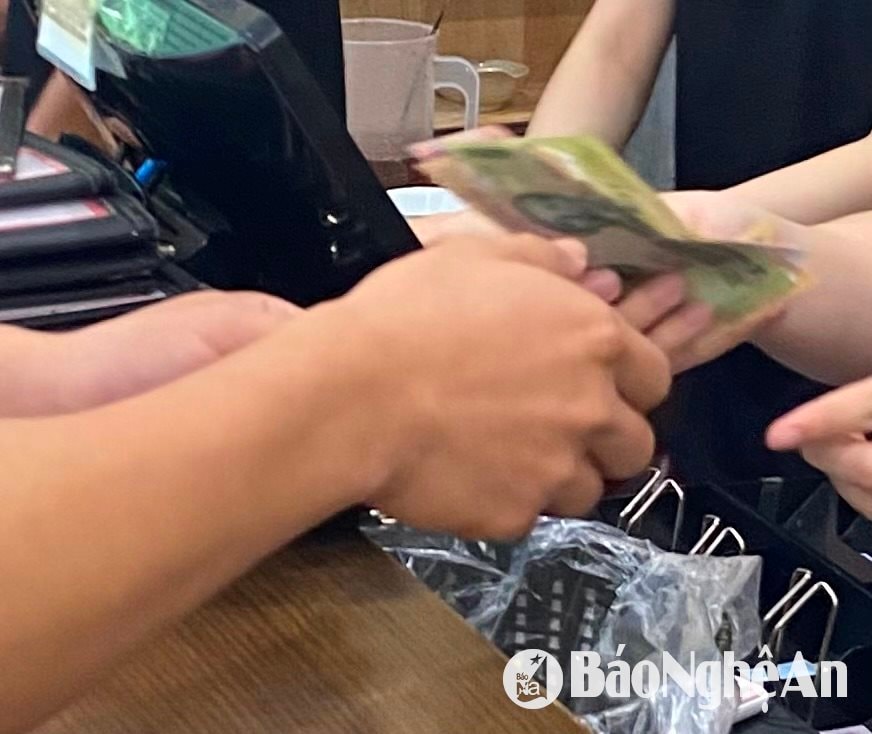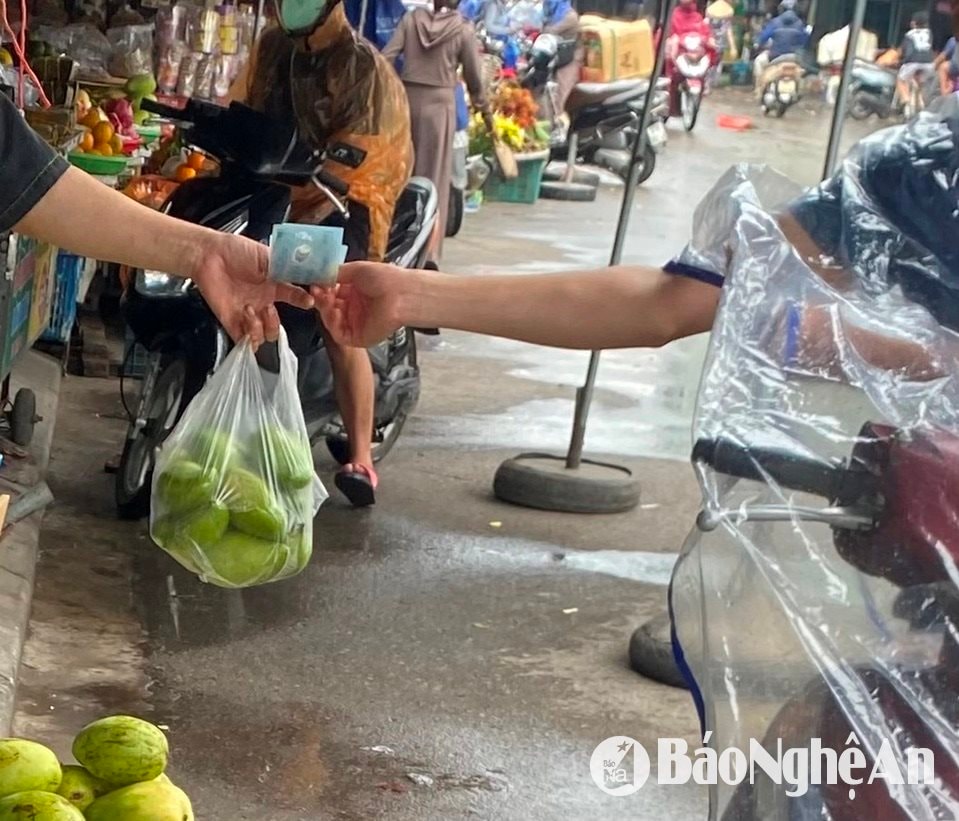Many small traders are 'avoiding' money transfers?
Concerned that the new tax policy from June 1, 2025 will tighten management of business households, many small traders are "avoiding" taxes by prioritizing cash payments.
Reality in many business areas in Nghe An province shows that the fear of being taxed when transferring money still causes many small traders to avoid this form of payment, continuing to prioritize using cash in transactions.

At a restaurant in Quang Trung Ward, Vinh City, the reporter recorded a large number of customers at noon. Although there was a QR code for electronic payment at the cashier, the restaurant staff still "gently reminded" customers that it was in the "cash priority" period. Many customers still transferred money when they did not have enough cash, but most still chose the cash form because the restaurant owner "asked" customers.
Ms. Nguyen Thi Lua, residing in Quang Trung ward, Vinh city, shared: "I go to the market regularly and have noticed that these past few days, the sellers kept saying: "Remember to bring cash next time." When asked, I found out that they were afraid that the money transferred would be tracked so they gradually limited it.
At Vinh market - one of the city's largest traditional markets, a similar situation also occurred. Most stalls did not have QR codes, transactions were mainly conducted in cash. A fruit vendor shared: "Everyone around accepted cash, so I followed suit. I still accepted money transfers from anyone, however, most customers transferred money because they did not have cash."

Not only in Vinh City, but also in many other areas such as Phu Dien commercial center (Dien Thanh town, Dien Chau district), Dien Thanh beach, Dien Ky commune... the situation of sellers reminding customers to pay in cash still exists. Some fashion stalls in Phu Dien, Dien Thanh town, although having QR codes at the cashier counter, still say that if you have cash, give it to the store to receive.
In addition to those who do business directly at markets or shops, even online sellers are looking for ways to "circumvent" the regulations. Some sellers ask customers to transfer money to many different bank accounts, avoid repeating the account holder's name, or do not clearly state the content of the money transfer. Even online shippers in localities in Nghe An province also accept cash. The purpose is to "avoid" having their revenue traced, thereby reducing or not declaring their actual income.

According to the Tax industry, businesses need to determine long-term goals, comply with legal regulations, and avoid facing legal risks..Applying electronic invoices will help tax authorities monitor cash flow and actual revenue more closely.
The Tax Department also said it will continue to strengthen coordination with banks, market management agencies and functional forces to compare payment data, electronic invoices and information from commercial platforms to promptly detect cases showing signs of tax fraud.

.jpeg)
In fact, many individuals and businesses need to adapt to changes in tax policies. In the context of the increasingly popular trend of cashless payments, refusing to transfer money not only causes inconvenience to customers but can also expose small businesses to legal risks later.
